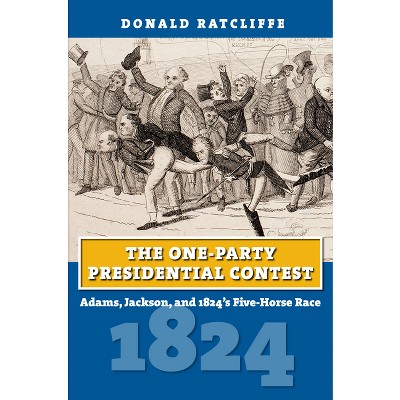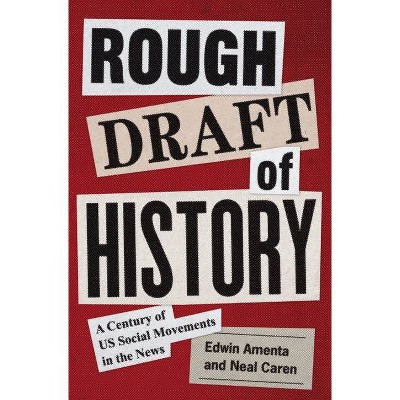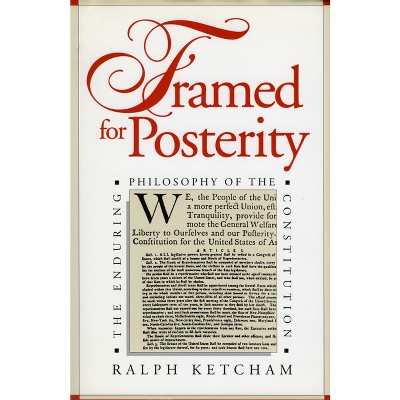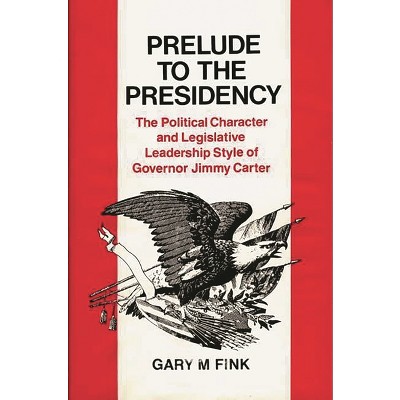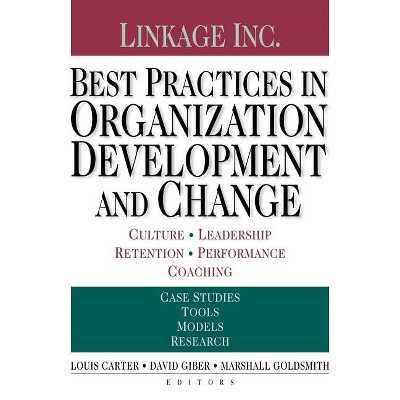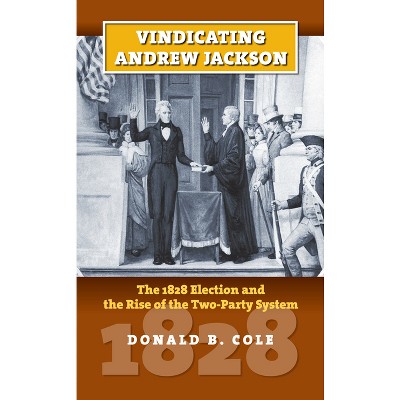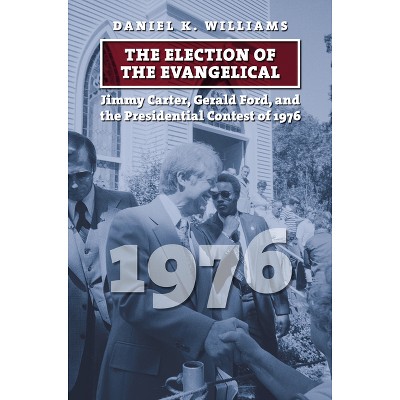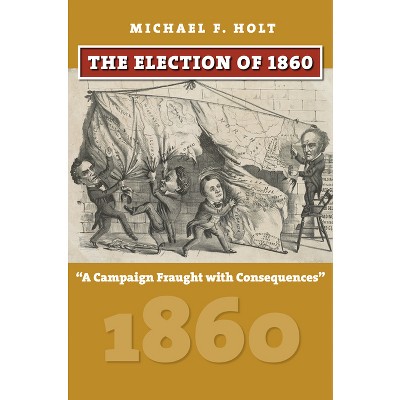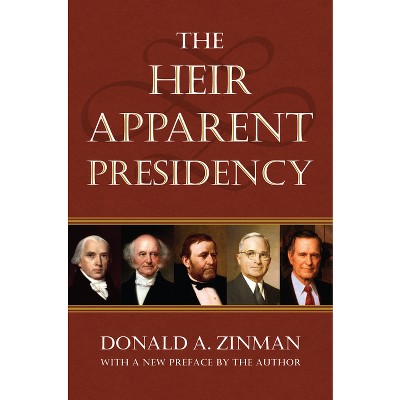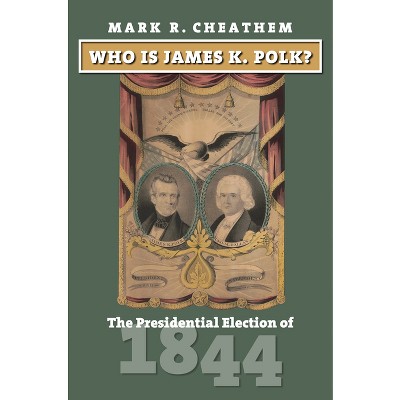Sponsored

America's First Wartime Election - (American Presidential Elections) by Donald A Zinman (Hardcover)
In Stock
Sponsored
About this item
Highlights
- As the heir apparent to the presidency in 1808, James Madison had a substantial reputation and an impressive list of credentials, including having cofounded the Democratic-Republican party with Thomas Jefferson and serving as Jefferson's secretary of state.
- Author(s): Donald A Zinman
- 280 Pages
- Political Science, American Government
- Series Name: American Presidential Elections
Description
About the Book
"As the heir apparent to the presidency in 1808, James Madison had a substantial reputation and an impressive list of credentials, including having cofounded the Democratic-Republican party with Thomas Jefferson and serving as Jefferson's secretary of state. Despite this, Madison's presidential victory in 1808 was hardly uncontested as he faced internal opposition from supporters of James Monroe and Vice President George Clinton. In 1812, then, it was by no means a sure thing that Madison would secure a second term, and that uncertainty grew substantially after Madison essentially asked Congress for a declaration of war on June 1, 1812, mere months before the election.America's First Wartime Election focuses on an overlooked moment in political history. The War of 1812 has generated a significant amount of attention, overshadowing the election that took place in the early stages of the conflict. As the United States and Great Britain clashed on the battlefield, President James Madison was challenged by DeWitt Clinton, the nephew of George Clinton, who was the simultaneous mayor of New York City and the lieutenant governor of his state. Clinton held a base of Democratic-Republican support in New York where many in his party opposed the war. Many New Yorkers also resented Virginia's domination of the presidency going back to George Washington's tenure. Other Democratic-Republicans supported the war but faulted Madison for his poor preparations and early battlefield setbacks. United in their opposition to the war, Federalists joined forces with Clinton, but the alliance was tardy, disorganized, and awkward.The story of this election is also a tale of weak political parties. The Federalist party had steadily lost strength since the election of Jefferson in 1800, and the Democratic-Republican party was still a young, disjointed, and fractious coalition. In order to sustain the party that he had helped to start, Madison was under pressure not only to secure his reelection but also to successfully conduct the war. While Madison had vulnerabilities, given America's poor preparation for the war, the fusionist ticket supporting Clinton was poorly positioned to challenge the incumbent president. Political parties in general were still in their infancy, thus complicating efforts to build a coherent alternative to Madison. For a fusion ticket to succeed in elections, strong political parties are necessary, which was not the case in 1812. Red-hot passions over the divisive War of 1812 overlapped with a presidential election that became a referendum on the conflict itself. Momentum is important in politics-a principle that was just as important over 200 years ago as it is today.Written for scholars, students, and the public alike, Donald A. Zinman's accessible study of this important but often ignored election is another illuminating entry in the University Press of Kansas's longstanding American Presidential Elections series"--Book Synopsis
As the heir apparent to the presidency in 1808, James Madison had a substantial reputation and an impressive list of credentials, including having cofounded the Democratic-Republican party with Thomas Jefferson and serving as Jefferson's secretary of state. Despite this, Madison's presidential victory in 1808 was hardly uncontested as he faced internal opposition from supporters of James Monroe and Vice President George Clinton. In 1812, then, it was by no means a sure thing that Madison would secure a second term, and that uncertainty grew substantially after Madison essentially asked Congress for a declaration of war on June 1, 1812, mere months before the election.
America's First Wartime Election focuses on an overlooked moment in political history. The War of 1812 has generated a significant amount of attention, overshadowing the election that took place in the early stages of the conflict. As the United States and Great Britain clashed on the battlefield, President James Madison was challenged by DeWitt Clinton, the nephew of George Clinton, who was the simultaneous mayor of New York City and the lieutenant governor of his state. Clinton held a base of Democratic-Republican support in New York where many in his party opposed the war. Many New Yorkers also resented Virginia's domination of the presidency going back to George Washington's tenure. Other Democratic-Republicans supported the war but faulted Madison for his poor preparations and early battlefield setbacks. United in their opposition to the war, Federalists joined forces with Clinton, but the alliance was tardy, disorganized, and awkward.
The story of this election is also a tale of weak political parties. The Federalist party had steadily lost strength since the election of Jefferson in 1800, and the Democratic-Republican party was still a young, disjointed, and fractious coalition. In order to sustain the party that he had helped to start, Madison was under pressure not only to secure his reelection but also to successfully conduct the war. While Madison had vulnerabilities, given America's poor preparation for the war, the fusionist ticket supporting Clinton was poorly positioned to challenge the incumbent president. Political parties in general were still in their infancy, thus complicating efforts to build a coherent alternative to Madison. For a fusion ticket to succeed in elections, strong political parties are necessary, which was not the case in 1812. Red-hot passions over the divisive War of 1812 overlapped with a presidential election that became a referendum on the conflict itself. Momentum is important in politics--a principle that was just as important over 200 years ago as it is today.
Written for scholars, students, and the public alike, Donald A. Zinman's accessible study of this important but often ignored election is another illuminating entry in the University Press of Kansas's longstanding American Presidential Elections series.
Review Quotes
"America's First Wartime Election is a well-argued, clearly written book that sheds light on a neglected, but important, moment in U.S. political history. Readers of early American political history will find much to appreciate here, and those interested in the broader dynamics of democracy under duress will find timely insights."--Congress & the Presidency
"The politics of a presidential election during wartime is the book's focus but the state of the two-party system, the problems of the candidate selection process, and the various means of determining electors for presidential elections prominently figure in the analysis. This exploration of the various issues facing this wartime presidential election and partisanship during the period provides a greater understanding of a neglected topic in political history."--Choice
"Though James Madison draws considerable attention from historians and political scientists alike, his 1812 presidential reelection has seldom been their focus. Donald A. Zinman here gives us an account of that contest that is alert to the role of third-party actors, informed about individual states' politics, and attentive to the part that Madison's aloof leadership played. He shows that the election was interesting in its own right in a narrative full of lessons for our own time."--Kevin R. C. Gutzman, author of The Jeffersonians: The Visionary Presidencies of Jefferson, Madison, and Monroe
"In the literature on the War of 1812, little attention has been given to the presidential election of that year. Donald Zinman has remedied that deficiency by a skillful use of a multiplicity of newspaper reports and voting returns. Readers will benefit greatly from Zinman's accounts of the fumbling and fruitless attempts of Madison's opponents to defeat him. It is now clear that Madison's reelection was in less jeopardy than many scholars had believed."--J. C. A. Stagg, author of The War of 1812: Conflict for a Continent and an editor of The Papers of James Madison project
"Political campaigns are routinely characterized as 'war, ' but they turn particularly divisive and consequential when a presidential election takes place during military conflict. In 1812, the young United States was mired in a war declared by the closest congressional vote in its history. Donald Zinman has produced a thorough and insightful account of this election and the political tensions of a country still finding its equilibrium after winning one war for independence only to have to fight another."--Walter R. Borneman, author of 1812: The War That Forged a Nation
"Zinman provides an incisive and thorough account of the 1812 election. It is especially insightful regarding the problems a presidential incumbent faces running for reelection during wartime."--Marc Landy, coauthor of Keeping the Republic: A Defense of American Constitutionalism
"America's First Wartime Election provides a careful and convincing analysis of how the first wartime election shaped campaigns, party politics and anticipated election practices that are largely associated with later political eras. In doing so, it fills an important gap in our understanding of the relationship between wartime and the development of the early American political parties and elections."--Jay Dow, author of Electing the House: The Adoption and Performance of the U.S. Single-Member District Electoral System
Shipping details
Return details
Frequently bought together
Trending Non-Fiction






